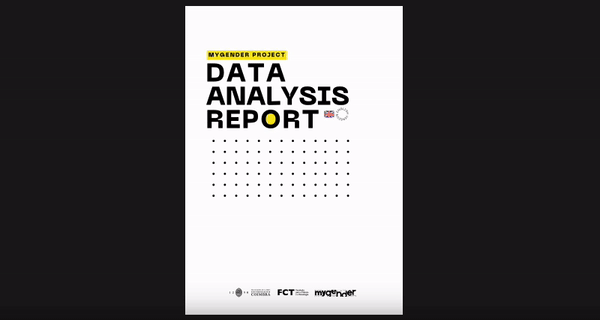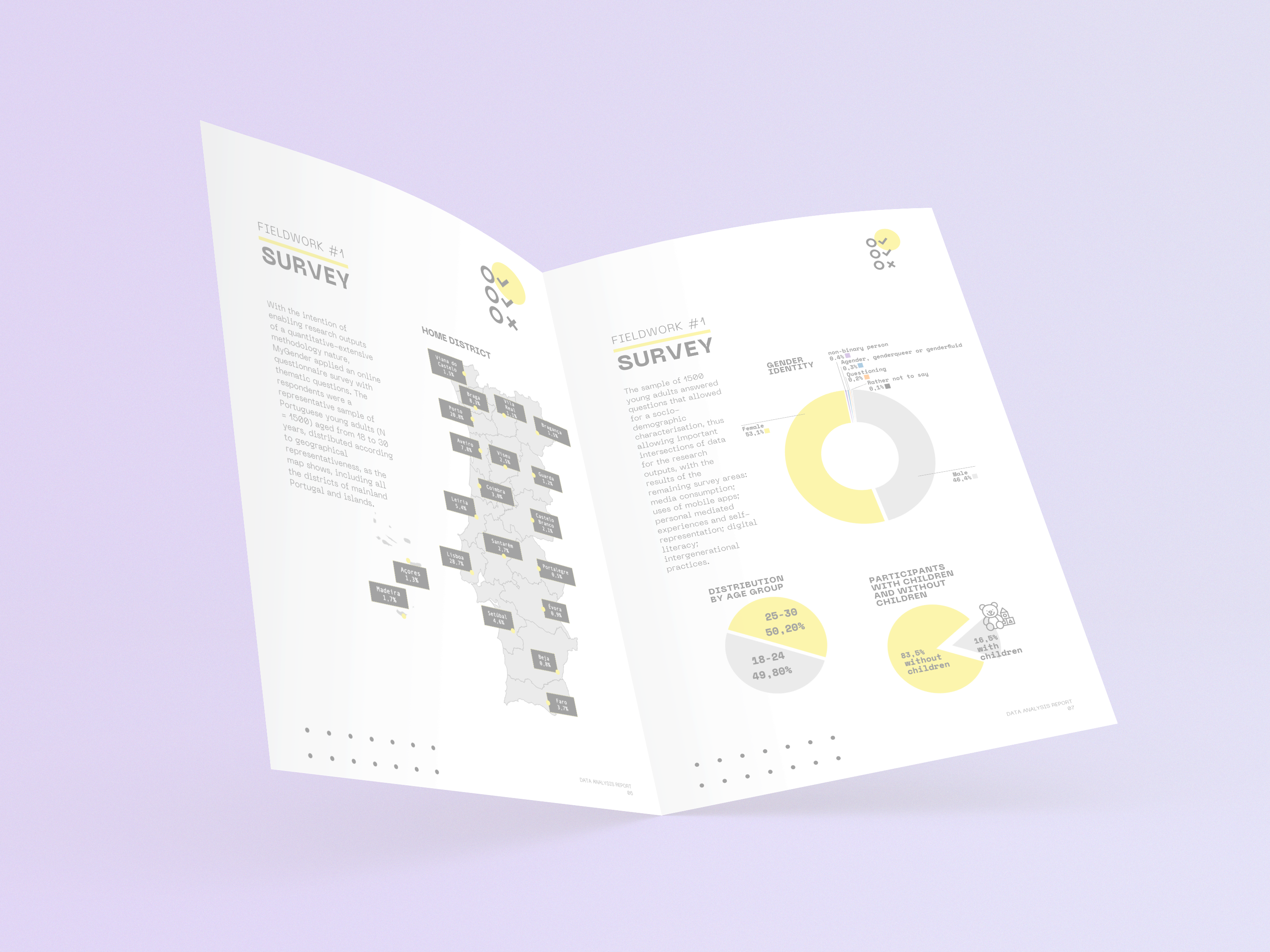As we approach the end of 2022, the MyGender project is launching the Data Analysis Report. In the report, we summarize the main key points of the various field research studies already carried out and which were foreseen in the conceptualization of the project. With the purpose of scientific dissemination, it includes information about an online questionnaire (to a representative sample of 1500 young adults), a three-month tracking of 342 young adults’ smartphone use, six focus groups (N=31) with university students and also semi-structured interviews with 25 young adults.

It is with reliable information and scientific data that organisations and projects can contribute to building strong foundations for a knowledge-sustained society. With such purpose, the team of MyGender – Mediated young adults’ practices: advancing gender justice in and across mobile apps launch the Data Analysis Report summarising the main findings across several fieldwork objects endured, envisioned in the project conceptualization and financially supported by Fundação para a Ciência e a Tecnologia (PTDC/COM-CSS/5947/2020). This report is part of the project’s scientific dissemination strategy that is focused on five different audiences: academics, specialised audiences (policymakers, stakeholders, developers), educators, young adults, and the general public.
This report includes the main findings from an online survey (to a representative sample of 1500 young adults in Portugal, with sociodemographic quotas); a 3-month tracking data of smartphone uses of 342 young adults, 6 focus groups (N=31) to university students and semi-structured interviews conducted to 25 young adults living in Portugal.
The Data Analysis Report has systematised the main results of the fieldwork already conducted, however, the MyGender project is still developing more data and, mainly, more analysis that has the fieldwork’s data from a scientific standpoint, to further understand young adults’ engagement with the technicity and imaginaries of mobile applications (m-apps), in terms of their everyday practices and (re)negotiations of their sexual and gender identities.








